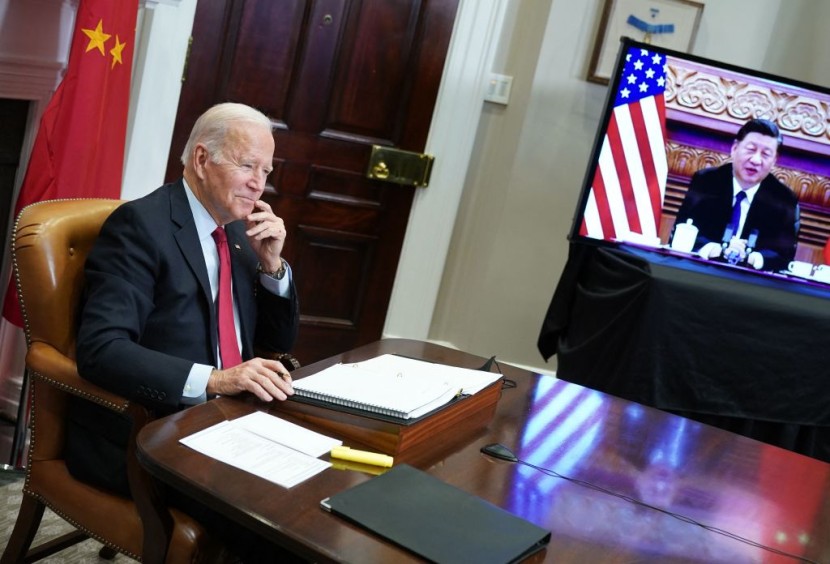
United States President Joe Biden and Chinese President Xi Jinping recently held a virtual summit where they would discuss various international issues, including nuclear weaponry and Taiwan's independence amid rising tensions.
As the talks began, Democratic Biden said that he had spent a lot of time discussing with Xi in previous meetings, expressing his hopes of having a meaningful summit with the Chinese president. Xi showed a similar demeanor while sitting inside the Great Hall of the People of Beijing.
Biden-Xi Virtual Summit
When the summit started, the Chinese president said that while he was disappointed he was unable to see Biden face-to-face, he was happy to see an "old friend." The talks marked a hopeful start to what many consider to be the most critical talks between the two leaders during Biden's presidency.
In recent months, Washington and Beijing have suffered a deteriorating relationship due to various international issues. Administration officials acknowledged the situation while they were managing the U.S. relationship with China that they consider being the Democratic president's most crucial international goal, CNN reported.
During their talks, the two presidents agreed to arms control talks as China is looking to boost its nuclear armament, said national security adviser Jake Sullivan on Tuesday. The virtual summit between Biden and Xi lasted for three hours and had the U.S. president raising the need for "strategic stability" as his relationship with the Asian nation continues to be on shaky grounds.
In a virtual panel with the Brookings Institute, Sullivan said that Biden and Xi were looking to develop this strategic stability. The official argued that it was only right for everyone to carry the process from here on out.
Plans on having such talks were not announced by either the White House or China's foreign ministry after the virtual summit. However, the two parties' agreement to hold arms control discussions signals a turnaround of decision from the Chinese Communist Party (CCP), Fox News reported.
International Issues
One of the most controversial topics that Biden and Xi discussed during the virtual summit was Taiwan's independence and China's continued aggression to reclaim the island nation. Beijing sees Taiwan as a province that separated itself from the mainland and wishes to unify the two regions.
While the United States recognizes and has formal ties with China, it has also committed to supporting Taiwan to defend itself in case of an attack. Amid the rising tensions between China and Taiwan, Beijing blamed the issues on "repeated attempts by the Taiwan authorities to look for US support for their independence agenda as well as the intention of some Americans to use Taiwan to contain China," said the China-run Global Times newspaper.
The state-run media added that such moves were "extremely dangerous" and compared it to playing with fire, arguing that anyone who does so will only get burnt. In a statement, the White House said President Biden "strongly opposes unilateral efforts to change the status quo or undermine peace and stability across the Taiwan Strait," BBC reported.
Related Article: China Defends Joining India on Coal "Phase Down" Instead of "Phase-Out" as Beijing Hits Production at All-Time Highs








